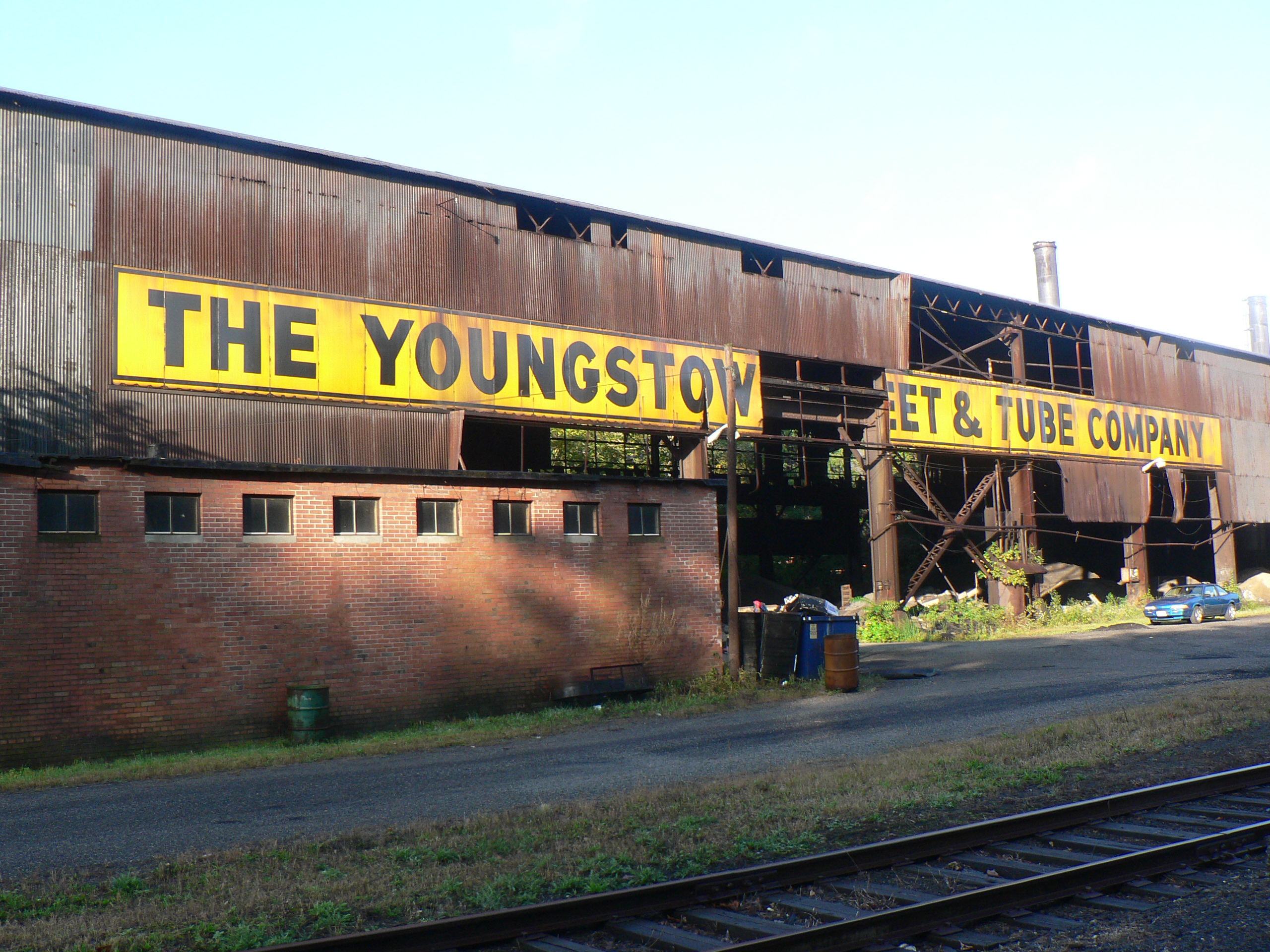I was on the subway the other day and a disparate group of six people of different ages, races and genders began a spontaneous conversation about how the they couldn’t afford to live anywhere nice anymore and how the middle class was gone in America, that the country wasn’t for them anymore. Small sample size to be sure, but one that’s backed up by more than four decades of research. Part of the problem could be remedied politically if finding solutions was in vogue in America, but the bigger picture would seem to be a grand sweep of history that announced itself in the aftermath of the Great Recession, as profits returned but not jobs.
I fear Derek Thompson’s excellent Atlantic feature “A World Without Work” may be accurate in its position that this time it’s different, that technological unemployment may take root in America (and elsewhere), and I think one of the writer’s biggest contributions is explaining how relatively quickly the new normal can take hold. (He visits Youngstown, a former industrial boomtown that went bust, to understand the ramifications of work going away.)
I don’t believe a tearing of the social fabric need attend an enduring absence of universal employment provided wealth isn’t aggregated at one end of the spectrum, but I don’t have much faith right now in government to step into the breach should such opportunities significantly deteriorate. Much of Thompson’s piece is dedicated finding potential solutions to a radical decline of Labor–a post-workist world. He believes America can sustain itself if citizens are working fewer hours but perhaps not if most don’t need to punch the clock at all. I’m a little more sanguine than that if basic needs are covered. Then I think we’ll see people get creative.
An excerpt:
After 300 years of breathtaking innovation, people aren’t massively unemployed or indentured by machines. But to suggest how this could change, some economists have pointed to the defunct career of the second-most-important species in U.S. economic history: the horse.
For many centuries, people created technologies that made the horse more productive and more valuable—like plows for agriculture and swords for battle. One might have assumed that the continuing advance of complementary technologies would make the animal ever more essential to farming and fighting, historically perhaps the two most consequential human activities. Instead came inventions that made the horse obsolete—the tractor, the car, and the tank. After tractors rolled onto American farms in the early 20th century, the population of horses and mules began to decline steeply, falling nearly 50 percent by the 1930s and 90 percent by the 1950s.
Humans can do much more than trot, carry, and pull. But the skills required in most offices hardly elicit our full range of intelligence. Most jobs are still boring, repetitive, and easily learned. The most-common occupations in the United States are retail salesperson, cashier, food and beverage server, and office clerk. Together, these four jobs employ 15.4 million people—nearly 10 percent of the labor force, or more workers than there are in Texas and Massachusetts combined. Each is highly susceptible to automation, according to the Oxford study.
Technology creates some jobs too, but the creative half of creative destruction is easily overstated. Nine out of 10 workers today are in occupations that existed 100 years ago, and just 5 percent of the jobs generated between 1993 and 2013 came from “high tech” sectors like computing, software, and telecommunications. Our newest industries tend to be the most labor-efficient: they just don’t require many people. It is for precisely this reason that the economic historian Robert Skidelsky, comparing the exponential growth in computing power with the less-than-exponential growth in job complexity, has said, “Sooner or later, we will run out of jobs.”
Is that certain—or certainly imminent? No. The signs so far are murky and suggestive. The most fundamental and wrenching job restructurings and contractions tend to happen during recessions: we’ll know more after the next couple of downturns. But the possibility seems significant enough—and the consequences disruptive enough—that we owe it to ourselves to start thinking about what society could look like without universal work, in an effort to begin nudging it toward the better outcomes and away from the worse ones.To paraphrase the science-fiction novelist William Gibson, there are, perhaps, fragments of the post-work future distributed throughout the present. I see three overlapping possibilities as formal employment opportunities decline. Some people displaced from the formal workforce will devote their freedom to simple leisure; some will seek to build productive communities outside the workplace; and others will fight, passionately and in many cases fruitlessly, to reclaim their productivity by piecing together jobs in an informal economy. These are futures of consumption, communal creativity, and contingency. In any combination, it is almost certain that the country would have to embrace a radical new role for government.•
Tags: Derek Thompson, Robert Skidelsky

